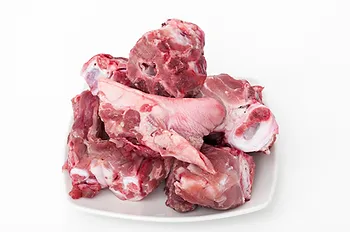Law no. 172 of 1 December 2023, entitled Provisions regarding the ban on the production and placing on the market of food and feed consisting of, isolated or produced from cell or tissue cultures deriving from vertebrate animals as well as the ban on the denomination of meat for products processed foods containing vegetable proteins,  regulates two distinct but equally controversial topics. Synthetic, or cultivated, meat and “vegetable meat” have in common that they are both aimed at finding alternatives to meat consumption. On the one hand, the Italian law wants to prevent the production and marketing of so-called “synthetic meat”. On the other hand, it wants to prevent foods of plant origin from exploiting the names of products of animal origin to present themselves as equivalent plant-based alternatives. The Italian position is not isolated in the EU: several states have adopted similar policies. Even 13 EU states supported the doubts about synthetic meat, expressed in a note sent to the Council of the European Union.
What is synthetic, or cultured, meat?
Pros and cons of synthetic meat
According to supporters of synthetic meat, this approach offers potential environmental, ethical and nutritional benefits. However, synthetic meat is the subject of various criticisms, ranging from ethical and moral concerns regarding genetic manipulation and cell culture, to the perception of consumers who may be skeptical of a product deemed “artificial”. Some in the traditional livestock sector fear a negative impact on their economic activity, while others raise concerns about food safety. Although synthetic meat is often considered more sustainable than intensive livestock farming, some criticism may arise regarding the overall environmental impact of the production process of lab-grown meat, including energy requirements, which are higher for synthetic meat. synthetic, and the necessary resources. There are also concerns about the high production costs of synthetic meat.
12 EU countries, in addition to Italy, raise doubts about synthetic meat: The note to the European council
These doubts, and others, were well explained in the note that was sent to the Council of the European Union, signed by Italy, Austria and France, and supported by the Czech Republic, Cyprus, Greece, Hungary, Luxembourg, Malta, Poland, Romania, Slovakia and Spain on “The role of the CAP in safeguarding primary and high-quality food production”, and discussed on 23 January 2024.
-
the role of farmers
The note moves from the fact that European farmers contribute 1.3% of European GDP, but their role in ensuring food security, self-sufficiency and the supply of safe, high-quality food is much higher. European farmers are the pillar of the rural economy, cultivating land sustainably with the support of the Common Agricultural Policy (CAP) and protecting cultural landscapes and the environment, it said. European agriculture is also distinguished by its farm-based approach and primary production, all guaranteed by the CAP.
The emergence of new food production practices based on artificial cells grown in the laboratory, such as meat production with stem cell technology, threatens traditional agricultural approaches. The debate on these practices, including health risks and labelling, is essential for shaping Europe’s future society.
-
The way to continue the debate
The note continues by indicating how, while waiting to determine whether the current legislation is adequate to address the issue of cultured meat, the outcome of the future debate should be based on different phases. Specific EFSA guidelines will need to be established, similar to those for new medicines, including preclinical and clinical studies as safety criteria. Subsequently, the Commission will have to conduct a full impact assessment, considering all issues, including the opinions of consumers and EU citizens. Only after these steps will the Council be able to launch a political debate on the future of lab-grown meat products in the EU.
Currently, lab-grown meat is not authorized on the EU market, as it requires an EFSA assessment for possible health risks before being authorised.
-
Doubts about the sustainability of synthetic meat
According to the note, cultured meat does not represent an ecological or sustainable option, nor does it offer higher standards of animal welfare than traditional meat. Initial studies indicate a negative climate impact and an energy-intensive process, with CO2 emissions up to 25 times higher than conventional meat .
The note further notes that cell-based lab-grown meat production requires economies of scale to be cost-effective. Due to high fixed costs, there are high risks that artificial meat production could be monopolized by a few large, large-scale industrial producers. This could lead to crisis-prone dependencies along the value chain and create further pressure on small family farms.
Synthetic meat law: bans in Italy
Italy is certainly not alone in its doubts.
The Italian law, referring to the precautionary principle, aims to prevent the use, preparation, sale, possession, importation, production for the purpose of exportation, distribution and administration or promotion of any product that consists of synthetic meat.
As indicated above, synthetic, or cultured, meat is a product currently not authorized in the European Union and, consequently, not yet available on the market in Europe and Italy. Every new food must be subjected to scrutiny by the European Food Safety Authority (EFSA), and therefore for the moment this ban provided for in Italian legislation does not violate, at least in substance, any community law. However, the law expresses a clear position in favor of meat production using traditional methods, recognizing the value of the national livestock heritage to be protected. Â
Vegetable meat
Various dishes of plant origin have made their way onto the market in recent years, to which it is difficult to give an attractive name for the consumer. Commonly, these products contain a variable content of plant proteins, depending on the quality, and are sold with names that recall animal products. These include, for example, tofu steaks, plant-based salmon, plant-based eggs, etc. There are several studies at European level which claim that consumers who purchase “plant-based alternatives” say they are not misled by these names. Certainly the average consumer is able to understand that plant-based steak is not of animal origin. These products have color, texture and often taste in common with foods of animal origin. However, they often have radically different protein contents and nutritional profiles, and it is therefore believed that the association between a product of animal origin and a product of plant origin can therefore mislead the consumer, as well as damage the producers of products of animal origin. Â
Protection of the names of products of animal origin
For processed products containing exclusively vegetable proteins, the use of: a) legal, usual and descriptive names referring to meat, to meat-based products or to products obtained predominantly from meat is prohibited; b) references to animal species or groups of animal species or to an animal morphology or animal anatomy; c) specific terminologies of the butcher’s, delicatessen’s or fishmonger’s; d) names of foods of animal origin representative of commercial uses.  A list of the sales names of foods which, if traced back to plant products, can mislead the consuming citizen about the composition of the food will be drawn up in a MASAF decree, within sixty days from the date of entry into force of the law. Â
Sanctions
The penalties for violating Law 172/2023 are severe. The law does not affect the fact that violations constitute a crime. For the sale of plant products with the names of products of animal origin, the crimes that can be abstractly configured in the most serious cases could be, for example, the crime of fraud in trade or the sale of industrial products with false signs. Where the fact does not constitute a crime, operators in the food and feed sector who infringe the provisions of articles 2 and 3 are liable to a pecuniary administrative sanction. This fine varies from a minimum of 10,000 euros to a maximum of 60,000 euros or 10% of the total annual turnover achieved in the last financial year closed before the violation was discovered, in the event that this amount exceeds 60,000 euros. However, the maximum fine cannot exceed 150,000 euros. Confiscation and a considerable series of additional sanctions will also be foreseen. Â



